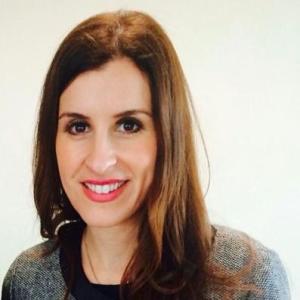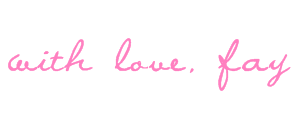 Randa Abdel-Fattah
Randa Abdel-Fattah
Randa Abdel-Fattah was born in Sydney in 1979. She is a Muslim of Palestinian and Egyptian heritage. She grew up in Melbourne and attended a Catholic primary school and Islamic secondary college where she obtained an International Baccalaureate. She studied Arts/Law at Melbourne University during which time she was the Media Liaison Officer at the Islamic council of Victoria, a role which afforded her the opportunity to write for newspapers and engage with media institutions about their representation of Muslims and Islam.
During university and her role at the ICV, Randa was a passionate human rights advocate and stood in the 1996 federal election as a member of the Unity Party-Say No To Hanson. Randa has also been deeply interested in inter-faith dialogue and has been a member of various inter-faith networks. She also volunteered with different human rights and migrant resource organisations including the Australian Arabic council, the Victorian migrant resource centre, Islamic women’s welfare council, Palestine human rights campaign, Asylum Seeker Resource Centre, to name a few.
Randa has used her writing as a medium for expressing her views about the occupation of Palestine. Her articles about Palestine, Australian Muslims and the misunderstood status of women in Islam have been published in the Australian, the Age, the Sydney Morning Herald, the Canberra Times, New Matilda, Le Monde (France).
Randa is frequently sought for comment by the media on issues pertaining to Palestine, Islam or Australian Muslims. She has appeared on SBS’s Insight, ABC’s First Tuesday Book Club, ABC’s Q & A, Channel 7’s Sunrise and Channel 10’s 9am.
Randa is also a regular guest at schools around Australia addressing students about her books and the social justice issues they raise. Randa has also been a guest at Sweden’s Gothenburg and Litterlund book festivals (2007 and 2008) and Kuala Lumpur’s Book festival (2008). She has also toured in Brunei and the UK.
Randa lives in Sydney with her husband and their two children. She works as a litigation lawyer.
 PERSONAL QUESTIONS
PERSONAL QUESTIONS
What is your full name?
Randa Abdel-Fattah
How old are you?
37
Favorite food?
Vanilla ricotta cannoli
Favorite color?
Turquoise
Favorite TV show?
Any BBC period drama.
Favorite place to read and/or write?
A good café.
Favorite book?
Pride and Prejudice
ON WRITING
Who are you when you’re writing?
I don’t recognise myself as myself if that makes sense. I’m creating, and it’s almost like an out of body experience.
Who are you when you’re not writing?
I’m a long to-do list.
Which do you prefer more?
When I’m writing.
What drives you to write more?
Mood. If I’m in the mood– which can switch on after watching a great movie trailer, reading a good book, engaging in a stimulating conversation, hearing an exchange on public transport– then I feel compelled to write.
How often do you experience writer’s block and what do you do to get out of it?
I give into it for a short while. I won’t fight against it for long. I’ll do something else and that usually inspires me back to my computer.
Are you a perfectionist when it comes to your work?
Yes. I don’t start a new scene until the first one is ‘perfect’. Which means I’m always editing because it’s never perfect.
Do you like making outlines when you write, or do you prefer to start from scratch and work your way from there?
I rarely plan. I jot down notes. I brainstorm. But I don’t do outlines or plans.
If you could do both at the same speed, which would you prefer: Writing on paper or typing your words? Why?
Typing. I’ve always been much better at typing my stories. The freedom to delete and edit. Because I edit as I go it makes a difference. When it’s ‘crossed out’ on paper it unsettles me. It looks like failure. But the screen is different. But note taking I have to write out.
What is the best writing advice that you could share with us?
Write often. It amazes me how so many people ‘want to be writers’ but don’t write regularly.
Of all the things that you’ve ever written (poems, essays, short stories, novels, etc.), which one is the most special to you?
When I was 16 years old, I wrote a letter to my 40 year-old self. It’s private and I have never shown anybody.
ON HER BOOK
What inspired the idea of your book, When Michael Met Mina?
Just over three and a half years’ ago I quit law and started a PhD to explore racism, specifically Islamophobia, from the point of view of its perpetrators. While I was conducting my fieldwork, interviewing people, attending anti-Islam and anti-refugee rallies, a character popped into my head. Well, two to be precise. One was a young Afghan refugee. A ‘boat person’ we see maligned and stigmatized by both sides of politics. Bright, fierce, courageous, scarred, she wouldn’t budge from my head. I thought about what it would mean for this young girl to have fled Afghanistan, grow up in Western Sydney, only for me to then throw her into a private school in the lower north shore of Sydney. I called her Mina. The other person who popped into my head at one of the rallies I was attending was a boy called Michael. As I interviewed people about their ‘fears of being swamped by boats’, about the ‘Islamisation of Australia’, about the so-called ‘clash of civilisations’, I wondered what it would mean to be a teenager growing up in a family peddling such racism and paranoia. How do you ‘unlearn’ racism? How do you find the courage to question your parents’ beliefs? How do you accept responsibility for learning about the world on your own terms? That’s when I decided to write a story that took these two characters, Michael and Mina, and threw them at each other.
What message would you like your readers to learn from that book?
Never stop questioning and reflecting on what you have, who you are, and what you know and don’t know.
What is the greatest challenge that you have encountered in the publishing world and how did you overcome it?
Finding a space in a very crowded and competitive industry is a challenge. Also not being tokenised and pigeon-holed with one’s writing.
Can you tell us more about #LoveOzYA?
#LoveOzYA is about promoting YA literature by Australians in Australia. It’s a lovely group made up of Australian YA authors, bloggers, teachers, readers. It has a strong social media presence on twitter, Facebook and instagram. I find it to be such a lovely community especially because there is a strong focus on diversity in YA fiction.
What makes When Michael Met Mina stand out?
It speaks to an issue that is often co opted by voices on the outside of the issues I address such as racism, living as part of a demonised minority, class. It’s timely without being opportunistic. It’s a story ultimately of hope in the power of young people to confront racism and find a way to empower themselves to imagine a different Australia.
In your opinion, how can the theme of the book affect its readers?
Hopefully by giving my readers an insight into the power of racism to affect both the perpetrators and the victims.
Do you believe the book promotes diversity in young adult literature? Why?
Yes definitely. I am a firm believer in literature reflecting the reality of our hybrid, complex, multicultural communities. But not just in terms of cultural and religious diversity, but class differences too and the diversity of experiences and lifeworlds that stem from differences in Sydney postcodes (equally applicable across all our major cities).
ON BOOK DISCRIMINATION
How would you define book discrimination?
Everybody is drawn to books for different reasons. Sometimes it is harder to resist market forces and sometimes it’s easy. Marketing firms and advertisers think they know what will entice people to choose one book over another, and spend big money to figure it out! Marketing and advertising power have a major impact on what books are given prominence, which authors are promoted and privileged over others and of course this all ties back to larger socialisation themes of who is privileged in race, gender, sexuality, ableism and so on.
How do you feel about it?
I’m conscious of it and when I see writers side-lined or crowded by more ‘marketable’ authors it can be disappointing. But in the genre I write in (YA fiction), there is a wonderfully supportive community and in Australia especially I feel there is a real and genuine sense of support and commitment to diversity.
What would you do against it?
I think it’s about getting out there and talking to kids, teachers, students, parents to give them opportunities to hear voices and stories that don’t get as much mainstream media space.
Read my review for When Michael Met Mina here.


One thought on “[Author Interview] Randa Abdel-Fattah”